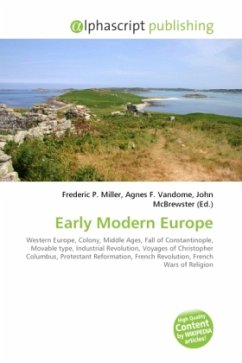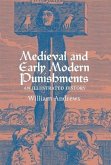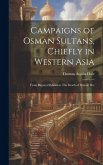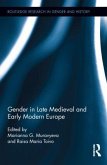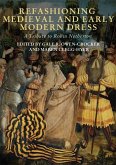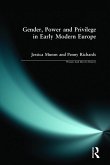Early modern Europe is the term used by historians to refer to a period in the history of Western Europe and its first colonies which spanned the centuries between the end of the Middle Ages and the beginning of the Industrial Revolution, roughly the late 15th century to the late 18th century. The early modern period is often considered to have begun with such events as the invention of moveable type printing in the 1450s, the Fall of Constantinople in 1453, the Voyages of Christopher Columbus beginning in 1492 or the start of the Protestant Reformation in 1517. Its end point is often linked with the outset of the French Revolution in 1789, or with the more nebulous origins of industrialism in late 18th century Britain. As with most periodizations of history, however, the precise dates chosen vary. Some of the more notable events of the early modern period included the Reformation and the religious conflicts it provoked (including the French Wars of Religion and the Thirty Years'War), the European colonization of the Americas and the peak of the European witch-hunt phenomenon.
Bitte wählen Sie Ihr Anliegen aus.
Rechnungen
Retourenschein anfordern
Bestellstatus
Storno

